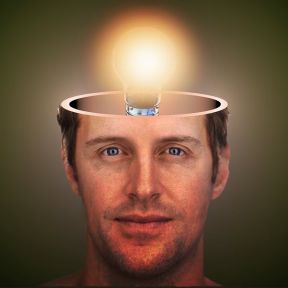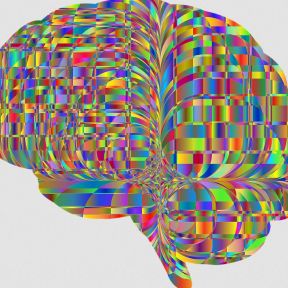
Neurological Assessment
A neurological assessment is an evaluation of a person’s nervous system, which includes the brain, spinal cord, and the nerves that connect these areas to other parts of the body. A neurological exam is done to assess for any abnormalities in the nervous system that can cause problems with daily functioning.
A complete exam is conducted by a neurologist and it includes evaluation of an individual’s speech, awareness of environment, motor function and balance (walking ability, muscle strength, and tone), sensation, reflexes, coordination, and the 12 cranial nerves of the brain. These nerves are involved in smell, vision, pupil activity, eye movement, taste, hearing, swallowing, and movement of the face, neck, and shoulders.
This assessment is often conducted if a person has experienced trauma or head injury, or reports a range of symptoms that may include dizziness, blurry vision, confusion, or difficulty with motor functions. This is done to detect neurological damage or disease.
Contents

These following nerves and functions are generally tested in such an exam:
Cranial Nerves
The cranial nerves control eye muscles, jaw muscles, and the tongue. Other cranial nerves include the optic nerve for vision, the vestibulocochlear nerve for hearing and balance, and the olfactory nerve for smell. Difficulties with any of these may indicate a neurological problem.
For the sense of smell, test tubes are filled with common odors like cinnamon or coffee, which are placed under each nostril. You will be asked to identify the odors.
The neurologist will ask you to wrinkle your nose and bare your teeth to test your facial nerves.
Similar to a normal eye exam, vision is tested by identifying letters or numbers. The physician will test your field of vision as well: You look straight ahead and cover one eye, the physician then waves a finger from the side of your head to the middle.
Motor System and Coordination
Mobility, coordination, and fine motor skills are tested. With your eyes shut and arms outstretched, can your finger touch your nose? Can you button and unbutton your shirt? Can you spin around once, and in how many steps?
The neurologist may test your reflexes by tapping your knee with a hammer.
Sensation
The physician may use soft fabric and a needle to gauge your ability to feel pain and touch. Also, can you feel warm or cold water?
Cognitive Function and Memory
Language and math skills are also examined. The physician will ask you the current date and year, your occupation, where you work, your current location. Difficulties answering these questions may indicate problems that need further attention.
Autonomic Nervous System
The autonomic nervous system controls your body's vital functions, such as your pulse, breathing, body temperature, and digestion. A neurological exam also includes questions about bowel movements, urination, and blood pressure.

A neuro assessment is conducted if a person has experienced trauma or head injury, or reports a range of symptoms that may include dizziness, blurry vision, confusion, or difficulty with motor functions. This is done to detect neurological damage or disease. The physician may order an EEG (electroencephalography) or an EMG (electromyography) or scans such as the fMRI (functional magnetic resonance imaging).
Yes, these tests are different. A neuropsychological exam evaluates an individual’s ability to read, speak, reason, comprehend others, dedicate information to memory, and stay focused. This assessment includes more than just tests, but tests are a key component. It will help health providers determine whether changes in cognitive function have been caused by normal aging or by other conditions.
Yes, these tests are different. The mini mental status exam is used to rule out cognitive decline, such as in dementia. The MMSE assesses an individual’s sense of location, ability to complete simple math, sense of time and date, overall cognitive function, and simple abilities such as listing common objects.
The BCSE is similar to the MMSE, as they are both designed to assess overall cognitive function. The BCSE is used when, for example, Alzheimer’s or dementia or learning difficulties are suspected. This brief exam, completed in about 10-20 minutes, also gauges a person’s estimation of time, verbal fluency, memory, and other abilities.
To rule out the worst medical complications, physicians can use the three-minute neurological exam. This quick assessment will help evaluate, for example, whether a person’s headaches are caused by a brain tumour or hemorrhaging. This analysis includes the patient removing his shoes and standing with eyes closed, walking on the tips of his toes, the finger-to-nose test, eye movements, certain reflexes, among other checks.

The typical neurological exam will include a general physical assessment and a discussion of symptoms and medical history, putting any neurological abnormalities into context. The health provider will use tools such as lights, reflex hammers, tuning forks, as well as tools for an eye examination to test these various functions. This exam looks for problems such as strokes, tumors, Parkinson’s disease, tremors, multiple sclerosis, and many other disorders.
Vital signs include breathing patterns, oxygen level, heart rate, blood pressure, and temperature. A person with compromised neurological function will have changes in these signs.
Gait, balance, and coordination are controlled by the cerebellum. Irregular movement may mean there is a problem, such as multiple sclerosis, Huntington's, or stroke.
Vision as well as hearing are always evaluated because if one cannot see or hear well, it won’t be possible to process, understand, and remember information registered through the eyes and ears. Your pupils size, shape, and how they react, can also inform you if there is a problem.
The exam often includes non-invasive measures of brain activity including an EEG (electroencephalography), which captures brain wave activity, or an EMG (electromyography), which captures nerve activity from the brain or spinal cord to a peripheral nerve such as in the arm or leg.
CAT scans such as the fMRI (functional magnetic resonance imaging) are used if a neurodevelopmental condition such as autism spectrum disorder or a neurodegenerative disorder such as Alzheimer's disease or Parkinson's needs to be ruled in or out, an assessment may be paired with neuropsychological tests as well. This involves pen and paper tests as well as clinical interviews.














